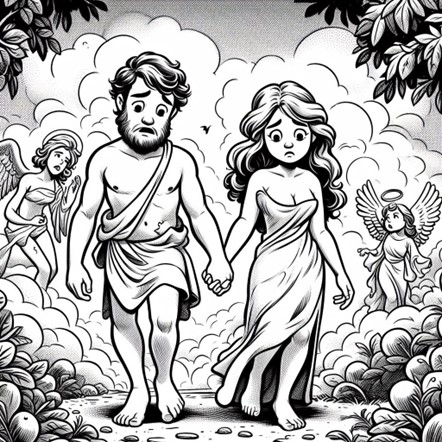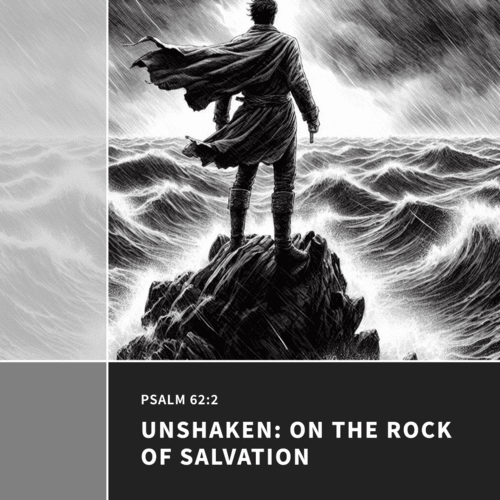Consequences of Sin in Genesis 3: Fall and Redemption
The Day Sin Entered the World (Genesis 3)
The story of Adam and Eve in the Garden of Eden is more than just a biblical account—it offers deep insights into the human condition, our capacity for sin, and the profound consequences that follow. This foundational narrative in the Bible unveils the devastating effects of sin, and more importantly, lays the groundwork for the story of redemption through Jesus Christ’s ultimate sacrifice.
The Consequences of Sin in Genesis 3
- Guilt and Broken Fellowship: When Adam and Eve disobeyed God, they felt shame and guilt (v.7), symbolising their broken connection with Him. Like them, we experience a nagging sense of guilt from our shortcomings and separation from God’s original plan.
- Hiding from God’s Presence (v.8): Fear replaced trust, causing Adam and Eve to hide from God’s presence. This represents humanity’s separation from God because of sin.
- The Blame Game (v.12,13): Instead of taking responsibility, Adam blamed Eve, and Eve blamed the serpent, highlighting our tendency to deflect blame and fracture relationships.
- Death Enters the World (v.19): Sin introduced death, replacing the promise of immortality with the inevitability of death—a reminder of the brokenness sin brought.
- Expelled from Paradise (v.22,23): Expelled from Eden, humanity lost the perfect state of dwelling in harmony with God, reflecting our struggle in a sin-marred world.
Consequences of Sin in Genesis and the Promised Redemption
Despite humanity’s fall, this narrative contains powerful glimpses of God’s redemptive plan:
- God’s Initiative: God seeks out Adam and Eve (v.9), foreshadowing Jesus, the Good Shepherd seeking the lost (Luke 15:3-7).
- The Covering: God’s provision of animal skin garments symbolically points to Jesus becoming the ultimate covering for our sins through His sacrifice (Romans 3:25).
- The Promise of Victory: The prophecy of enmity between the serpent and the woman’s offspring (Genesis 3:15) foretells Jesus’ ultimate victory over Satan through His death and resurrection.
The Promise of Restored Fellowship
Jesus’ death on the cross tore down the barrier between humanity and God, as symbolised by the ripped temple veil (Matthew 27:51). Through faith in Christ and forgiveness of sins, we regain access to God’s presence.
Revelation 21-22 depicts a “new heaven and new earth” – a restored paradise where we are welcomed back as forgiven children of God, not as guilty figures.
The story of the Fall is not one of despair, but a starting point. Though the consequences of sin in Genesis are deep, the fall lays the foundation for the story of redemption. Throughout the narrative, we see glimpses of God’s redemptive plan at work, pointing towards the ultimate sacrifice of His Son, Jesus Christ, who offers us forgiveness, reconciliation, and the hope of eternal life.
Related Reads
Editor's Pick
SUPPORT US:
Feel the Holy Spirit's gentle nudge to partner with us?
Donate Online:
Account Name: TRUTHS TO DIE FOR FOUNDATION
Account Number: 10243565459
Bank IFSC: IDFB0043391
Bank Name: IDFC FIRST BANK






